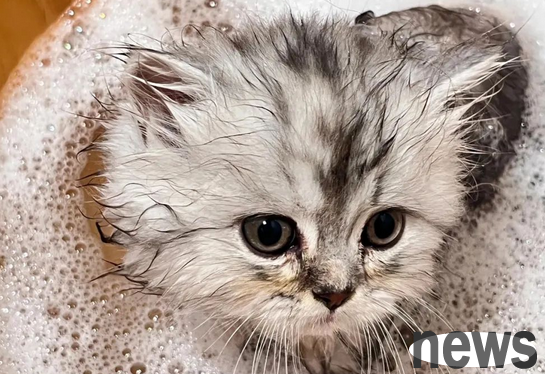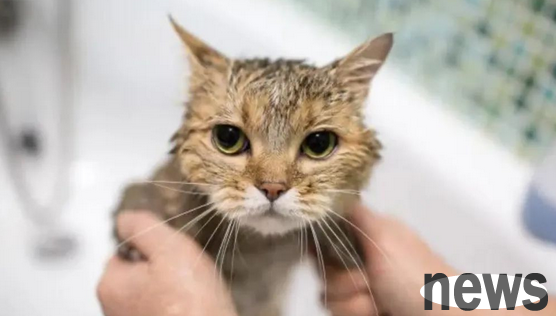1. Protecting natural sebum First of all, we need to understand that cat's skin is completely different from human skin. Cats’ skin is more sensitive than human skin, and their skin is covered with a natural layer of sebum, which helps protect th...
1. Protecting natural sebum
First of all, we need to understand that cat's skin is completely different from human skin. Cats’ skin is more sensitive than human skin, and their skin is covered with a natural layer of sebum, which helps protect the skin from the external environment and helps maintain the normal function of the skin.

If you bathe your cat frequently, it will destroy this layer of natural sebum, causing dry skin, itching, redness and swelling. This may also cause more serious problems such as skin diseases and hair loss. Therefore, to protect the health of cats' skin, we cannot bathe them frequently. 2. Cats have a natural temperature regulation mechanism. Cats are natural predators. They need to maintain agile body and flexible movements. To adapt to this lifestyle, the cat's body has a unique temperature regulation mechanism. Their skin and hair are an important part of this mechanism. Cats’ hair can help them regulate their body temperature and maintain their body comfort. When the hair becomes wet, it is difficult for the cat's body to quickly return to normal body temperature, which will not only affect their comfort, but may also pose a certain threat to health. In addition, if cats bathe frequently, their bodies will constantly adapt to changes in moisture, resulting in disorders in the body's temperature regulation mechanism, which will affect health. 3. Generate unnecessary pressure. For many cats, taking a bath is something that they don’t like. Some cats even react stress because they are afraid of taking a bath. Frequent bathing of cats will bring unnecessary stress and fear to them, which is not good for cats' health and psychology. Therefore, for the happiness and health of cats, we should not give them frequent baths. 4. Naturally clean hands are different from humans. Cats are very clean animals. They clean themselves often, keeping them clean by licking their hair with their tongue. In addition, cats' saliva has a bactericidal effect and can help them prevent some skin diseases. Therefore, cats do not need to take a shower regularly compared to dogs. To sum up, while bathing cats may seem like a good idea, doing so can actually have a negative impact on their health and well-being. Therefore, we should respect cats’ natural habits and reduce the frequency of bathing them. Of course, this doesn't mean we don't need to clean the cat. In daily care, we can use dedicated cleaning products to keep cats hygienic.
First, we can use special dental cleaning supplies to regularly clean cats' teeth to prevent periodontal disease. Secondly, we can use special ear cleaning products to regularly clean cat ears and prevent ear mites and other diseases. In addition, we can also use special eye wash supplies to regularly clean cat's eyes to prevent eye diseases. These daily care measures can help us take care of our pets better and make them live a healthier and happier life.

Finally, it is important to remind everyone that even if your cat needs a bath, you must use shampoo and conditioner specially designed for cats. These products can better protect cats' skin and hair and avoid unnecessary damage. At the same time, be sure to pay attention to the water temperature when taking a bath, and do not overheat or be too cold to avoid affecting the health of the cat. Also, be sure to thoroughly dry your cat's hair after bathing to avoid colds and other health problems. In short, while we can’t bathe cats frequently, we can still keep them hygienic through daily care. In the process of caring for pets, we should respect their nature and arrange care measures reasonably to make them live a more comfortable and healthy life. If you have any questions or concerns about your pet's health, please consult your veterinarian promptly. Veterinarians are pet health care professionals who are able to provide personalized advice and guidance based on your pet’s situation.

